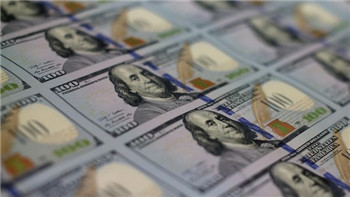(单词翻译:单击)

When US Federal Reserve officials meet in September to decide whether to raise interest rates, they will have a plethora of economic data to ponder. But if they want to get a novel twist on the current state of finance, they should take a glance at the balance sheets of American companies.
当美联储(Fed)官员9月开会决定是否加息时,他们需要考虑大量经济数据。然而,如果他们希望对当前的金融状况有一个新颖的见解,他们应当看一看美国公司的资产负债表。
For these days, it seems that a subtle — and largely unnoticed — shift is under way in how American companies are placing their spare funds. And, like so much in western finance today, it is a trend that is partly driven by some unexpected side effects of a low interest rate world.
因为如今美国企业存放多余现金的方式似乎发生了微妙(且基本没有引起注意)的变化。而且就像西方金融业目前的很多趋势一样,这在一定程度上是由低利率世界的一些意外副作用驱动的。
To understand this, take a look at a survey recently released by the Association of Financial Professionals on the behaviour of corporate treasurers. This analysis starts by highlighting a point that is well known: namely that holdings of corporate cash have recently swelled, because company profits have surged, but investment has remained relatively low.
要了解这点,看看美国财务管理专业人士协会(Association of Financial Professionals)最近公布的一份有关公司财务主管行为的调查吧。这一分析首先强调了人们熟知的一点:即近年公司的现金持有量增加,因为公司利润飙升,但投资仍相对低迷。
The AFP reports, for example, that 31 per cent of treasurers said that their cash balances rose last year, while 46 per cent reported that they were unchanged, and most treasurers expect this pattern to continue. Little wonder, then, that economists estimate that there is between $1tn and $2tn of unused firepower now sitting on corporate balance sheets.
例如,该协会称,31%的公司财务主管表示,他们去年的现金余额增加,而46%的财务主管称,现金余额没有变动,多数公司财务主管预测,这一趋势将持续。不足为奇的是,经济学家们估计,现在公司资产负债表上的未使用现金规模为1万亿至2万亿美元之间。
But what is most interesting is a detail that is normally hidden from view: namely what treasurers say they are doing with this money mountain. Until recently, when treasurers were blessed with spare funds, they tended to store these in the capital markets.
然而,最有趣的是一个通常被人忽视的细节:即财务主管们对这些巨额资金的处置方式。直到不久以前,当财务主管们得到多余现金时,他们往往会投资于资本市场。
The AFP says, for example, that in 2008 treasurers were placing about half of their short-term money in money market funds, treasury bills and other securities; one-fifth was sitting in vanilla bank deposits. That makes sense: in the early years of the 21st century it was taken for granted that finance was evolving towards a world where the capital markets ruled. Sticking money into bank deposits seemed an old-fashioned thing to do.
例如,该协会称,2008年时,公司财务主管将约一半的短期资金投向货币市场基金、美国国债以及其他证券;五分之一存入普通银行存款账户。这是合理之举:21世纪初,人们想当然地认为,金融正朝着资本市场主宰一切的方向发展。把现金存入银行似乎是一种过时的做法。
But today that evolution has gone into reverse: at present some 56 per cent of American corporate cash is sitting in bank deposit accounts, the highest proportion since the AFP started its survey 10 years ago. Money market funds, by contrast, now hold a mere 15 per cent of short-term corporate funds.
然而,如今的方向似乎发生了逆转:目前,约56%的美国公司现金存放于银行存款账户,为该协会10年前开始调查以来最高比例。相比之下,货币市场基金现在仅持有15%的公司短期资金。
In some senses, this is surprising. Never mind the fact that bank accounts seem retro; what is more notable is that they are not entirely “safe”, since Federal deposit insurance only covers part of these deposits. And bank accounts today pay virtually no interest; some even charge for storing cash.
从某种意义上看,这令人意外。且不提银行账户显得过时这一点;更引人注目的是,银行账户并不完全“安全”,因为联邦存款保险只涵盖部分存款。而且银行账户的利率目前几乎为零;一些甚至对存款收费。
But it seems that treasurers have been quietly shifting their funds for three reasons. First (and thankfully), they now have more trust in the health of American banks. Second (and less positively), they are becoming worried about the regulatory environment around the capital markets. Most notably, with the forthcoming Securities and Exchanges Commission reforms to the money market world, corporate treasurers are quietly withdrawing from some of these funds.
但公司财务主管悄悄转移资金似乎出于3个原因。首先(值得庆幸),他们现在对美国各银行的健康状况更有信心。其次(不那么正面),他们对整个资本市场的监管环境感到担忧。最引人注目的是,随着美国证交会(SEC)即将对货币市场实施改革,公司财务主管正悄悄撤出一部分货币市场基金。
The third factor is that, in a world of ultra low rates, it has been so hard for treasurers to get any returns from capital market instruments that many have given up even trying. Money is being stashed in retro bank accounts because nobody can think of anything better to do. It is a form of zombie finance.
第三个原因是,在超低利率环境下,公司财务主管从资本市场工具中获得回报的难度非常大,以至于很多财务主管已经连试都不试。现金正被存入过时的银行账户,因为没有人想得出更好的办法。这是一种僵尸金融。
Now, the treasurers are certainly not alone in this stance: many retail investors are doing the same. The US Trust, to name one example, recently reported that two-thirds of wealthy individuals hold more than 10 per cent of their assets in cash, an unusually high .
公司财务主管肯定不是唯一持这种立场的人:很多散户投资者也在这么做。举个例子,美国信托(US Trust)最近报告,有三分之二的富有个人持有的现金超过总资产的10%,这一比例高得异乎寻常。
If you want to be optimistic, it is possible to think — or hope — that this pattern will soon come to an end. If the US economy keeps posting a recovery, companies may start investing their spare cash in plant and equipment — or even people. Similarly, if the US Fed raises interest rates this autumn, treasurers may start to believe that it makes sense for them to store their money in the capital markets, which will almost certainly produce better returns before those retro bank accounts.
如果你希望乐观点的话,那么你可以认为(或者希望)这种模式将很快结束。如果美国经济持续复苏,公司可能会开始将多余现金投资于厂房设备,甚至员工。同样,如果美联储今年秋季加息,公司财务主管可能会开始认为,将资金存入货币市场是合理之举,这几乎肯定会带来比银行账户更高的回报。
But until then, American companies are living in a financial system that seems calm on the surface, if not almost normal — but is nevertheless distorted in subtle, hard-to-see ways. It is little wonder, then, that so many Fed officials are keen to “normalise” the price of money again. Better just hope they can do this in a way that does not cause too many shocks to the banks, let alone to those half-hidden corporate treasurers.
然而,在此之前,美国公司所处的金融体系表面看来一派宁静,甚至近乎正常,但却以微妙而很难看到的方式被扭曲。因此那么多美联储官员希望使资金价格回归“正常化”也就不足为奇了。但愿他们这么做时不会对银行造成太多冲击,更别提那些躲在幕后的公司财务主管了。


